We spoke to over 1000 legal professionals Australia-wide about important factors in their workplace. In partnership with Perceptive, our goal was to uncover insights into workplace conditions that lawyers and their organisations can use to foster healthier, more productive and supportive environments. Take a look at what they told us.

"Our survey revealed recurring themes including the integral role supportive workplace cultures play in employee satisfaction, a strong desire for flexible working arrangements, and unsurprisingly, the importance of fair remuneration."
- Neville Carter, CEO of The College of Law

WORKPLACE SATISFACTION REPORT
Discover the key insights, results and recommendations to help you in your legal career to discover Where’s Next?
KEY FINDINGS
The survey explores factors influencing employee tenure, job satisfaction, career fulfillment, and psychosocial well-being. Our findings highlight recurring themes, such as the critical role of supportive workplace cultures in fostering employee satisfaction, a strong desire for flexible working arrangements, and unsurprisingly, the significance of fair remuneration. Discover the five key insights.
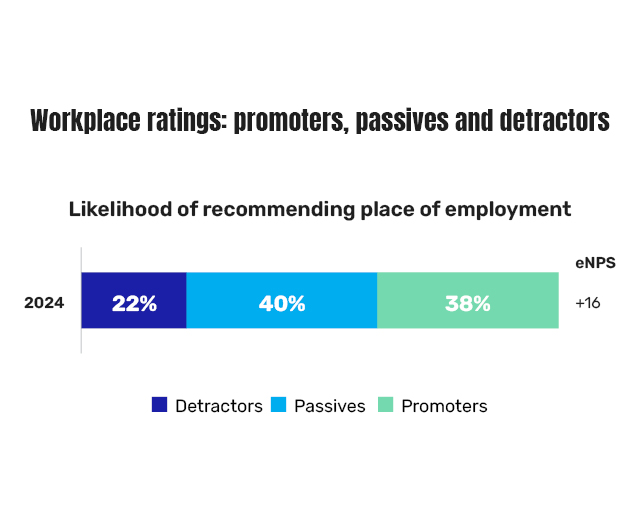
1. ONLY 2 IN 5 LAWYERS WOULD RECOMMEND THEIR WORKPLACE TO OTHERS
Key factors such as a supportive culture, flexible work options and opportunities for career growth, advancement and development are boosting workplace satisfaction, with 2 in 5 lawyers recommending their workplace.
Not all experiences are positive and reasons for dissatisfaction include: toxic workplace, poor management and leadership, and unsatisfactory pay.
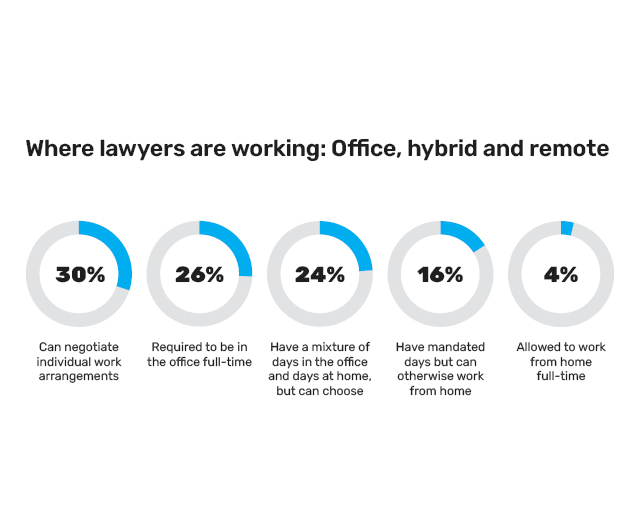
2. LAWYERS WITH FLEXIBLE WORK ARRANGEMENTS ARE THE MOST SATISFIED
Hybrid work options are the top preference for lawyers, with those enjoying schedule flexibility reporting the highest workplace satisfaction levels.
The survey revealed 74% of respondents are benefitting from flexible arrangements – whether through remote work, office-home splits or another custom setup.
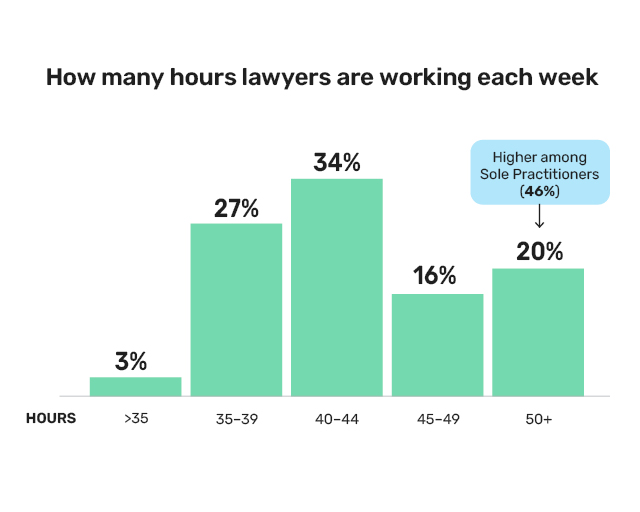
3. MOST LAWYERS ARE WORKING STANDARD HOURS
When it comes to work hours and billable targets most lawyers (61%) work 35-44 hours a week. A further 20% work 50+ hours a week (higher among Sole Practitioners at 46%), 16% work 45-49 hours per week and 3% work under 35 hours or less.
Only 19% surveyed felt pressured to work overtime, being women across the board and professionals working in larger firms.
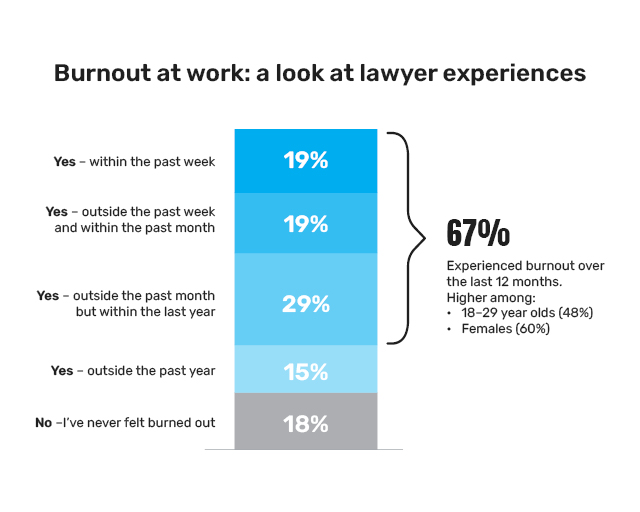
4. ALMOST 70% OF LAWYERS EXPERIENCED BURNOUT IN THE PAST YEAR
Around two-thirds of lawyers reported experiencing burnout over the past year. What are the key drivers of burnout? Intense workloads and pressure on personal time.
Those who experienced burnout over the last year, a higher proportion were women (60%) compared to men (40%). Additionally, 48% of those who experienced burnout over the last year were aged 18 to 29 years.
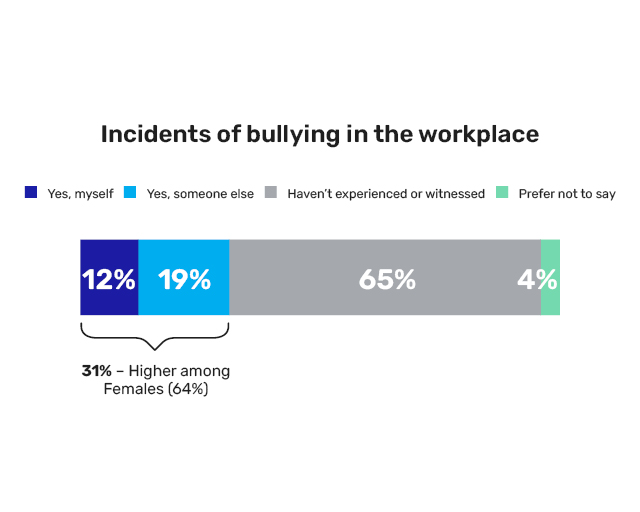
5. IN THE PAST YEAR, 31% OF LAWYERS EXPERIENCED OR WITNESSED UNLAWFUL WORKPLACE BULLYING
Most lawyers reported they have not faced or observed workplace bullying, harassment or discrimination.
Still these issues persist – with nearly 31% (64% of these being women) experienced or witnessed bullying in the past year.
On a positive note, respondents praised large law firms, government bodies and corporate organisations for effective, accessible systems to address allegations and support employee well-being.
WHERE'S NEXT?
Are you interested in talking to us about the key insights and results for your organisation?

